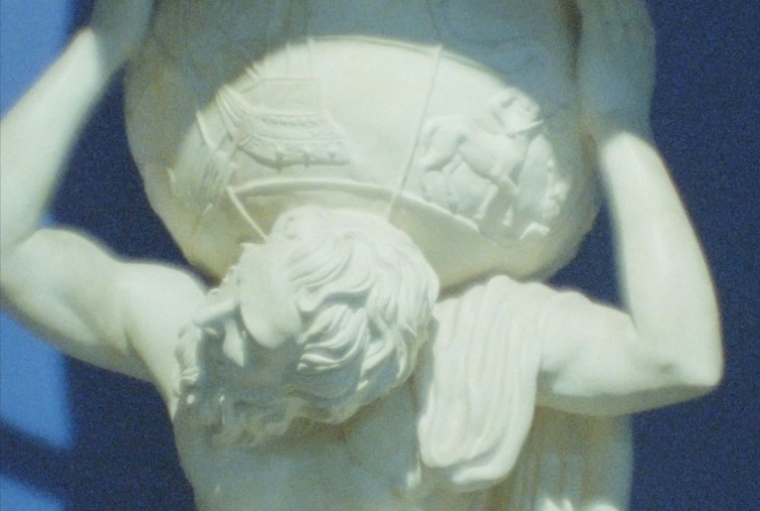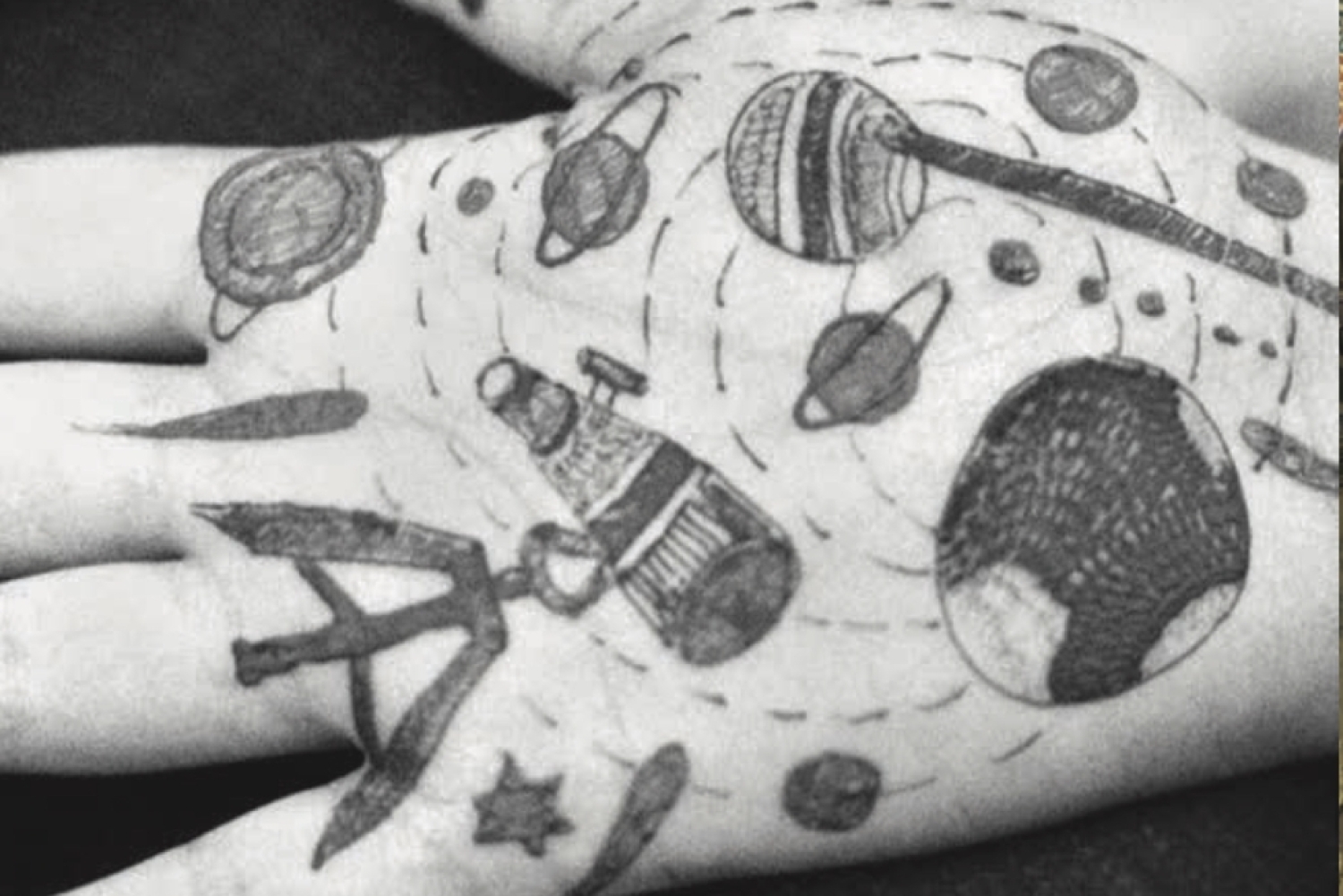

During the pandemic, just like the lapse of time and space, there felt like a gap in information, with science, research, medical advice; something to hold on to perhaps to process the immense grief we were all experiencing. It was religion, spirituality and metaphysical realms that offered some solace. Many bizarre explanations and solutions surfaced to make sense of this invisible force taking thousands of lives. In India, too, many hypotheses were proposed by the devout, the superstitious, the politically motivated and the helpless. On a personal level, just before the second wave of the pandemic hit India, in the summer of 2021, artist/filmmaker Gavati Wad lost her grandfather. 'I watched as my family contacted spiritual healers, tarot card readers, mediums and psychics to try and have one last conversation with him. A man with a scientific temperament, I wondered if Abba would approve of us con tacting him this way. I became interested in how we explain what happens to us and how we mourn our loved ones. I spoke to scientists, poets, spiritual healers and family members who were grieving their loved ones'. With her debut film, O Seeker she revisits childhood anxieties, 'this time with curiosity rather than fear, amusement rather than dread and above all, with a sense of humour',
Born in New Delhi and brought up in Pune, Gavati works with 16mm film, digital video and performance. Her work focuses on questions of identity in contexts such as gender, the domestic home environment and the nation state. Her short film was one of the few that travelled to the prestigious Berlin Film Festival this year. Gavati was eight when she moved to Pune. Her mother is an actor and grew up watching her perform theatre in Hindi, Marathi and English. The whole act of it fascinated her, which traces her interest in storytelling. "The feeling of sitting in a theatre while the lights dim slowly and the curtains part to build a portal into another world still makes my heart beat faster than usual and I look forward to surrendering to what I am about to receive.'
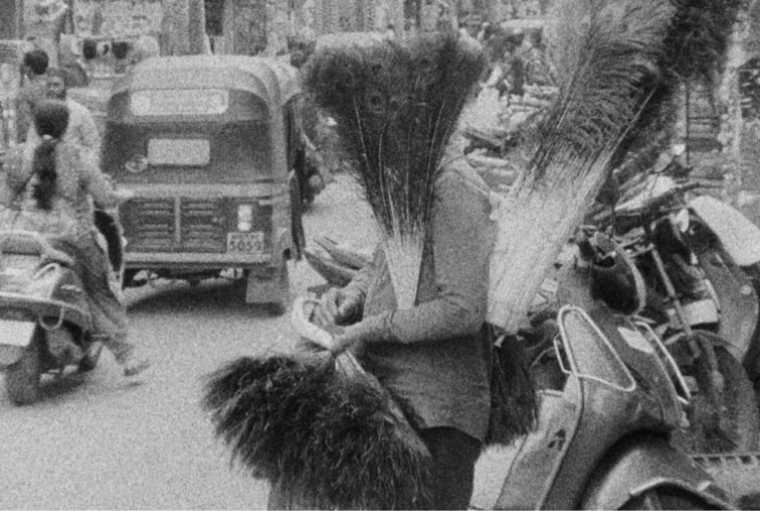
When and how did your romance with filmmaking begin?
I'm not sure if I share a romance with filmmaking. My relationship with the form has actually been quite turbulent but we're slowly becoming friends. All I know is that I love what cinema does to me, I have always been deeply moved by it. I can only hope that what I make has the same effect on someone else.
After O Seeker, do you know what sort of themes do you gravitate towards? What are the kind of stories you want to tell?
How science, spirituality, religious practices and the law co-exist in India is extremely special. We have access to diverse sources of knowledge and ways of understanding the world that I have become increasingly interested in. With O Seeker, I have only scratched the surface of what I want to explore with these themes and there is a lot to understand about how culture explains scientific phenomena and vice versa.
What inspired O Seeker? When and how did you start writing it?
O Seeker is a journey through a young girl's absurd cycles of thinking about human existence, news media and the cosmos. As a child, I would find myself trapped in these unending spirals until I finally fell asleep, exhausted and with most of my questions remaining unresolved. These childhood fears and anxieties resurfaced recently as the world struggled to wrap its head around the COVID-19 pandemic. Making O Seeker was like putting together a puzzle. When I began making it, I had only a rough list of shots that I felt belonged in the world of the film because I had a sense of what I wanted to address but many new images and ideas emerged while I was filming. So I decided to stay open to what came my way and to work intuitively. I discovered a lot of the structure and connections in the film, much later, while I was editing. That is when I actually began writing the film.
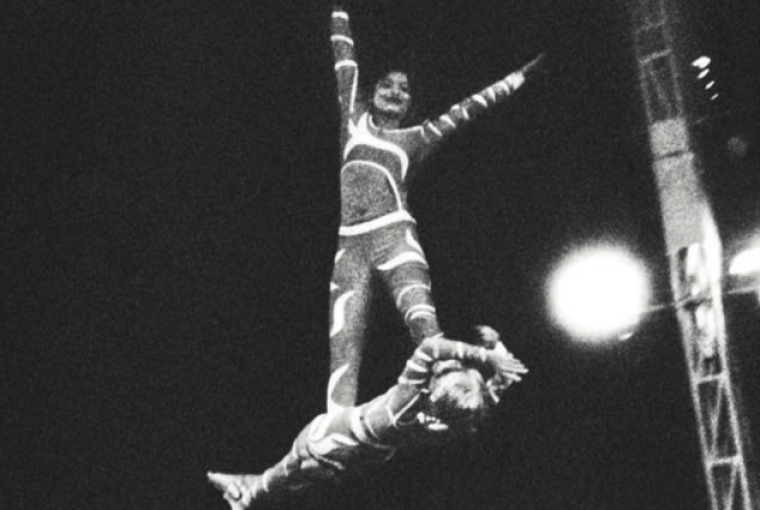
Can you talk about its treatment?
O Seeker gave me the opportunity to have many wonderful conversations about love, loss, grief, planetary movements, science, spirituality, magic, politics and faith with people who were incredibly generous with their knowledge and experiences. In essence, these conversations were my research and greatly influenced the way in which the film unfolds. But since the film has a lot to do with life beyond the physical world as we know it, it made sense to leave some things up to chance even in terms of the material I worked with. For example, I shot some of the sequences on expired stock of 16mm film that someone happened to be giving away at the time. Since the chemical composition of film changes and shifts when it ages, I wasn't sure if I would get an image and couldn't predict what it would look like. When I got the film back from the lab, I loved the inconsistency in colour and texture that the expired stock gave me. These are now some of my favourite parts in the film.
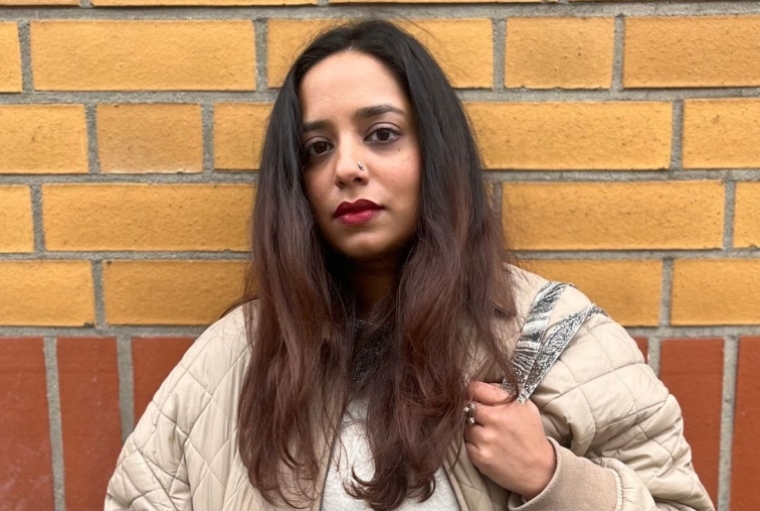
Gavati Wad
Will 16mm be your chosen medium? What do you like about it the most?
Once you fall in love with celluloid, it is difficult to return to the digital image. Film is affected by the weather, by light and by all the hands that it passes through from shooting to processing the footage and scanning it. Working with film as a material teaches you to invest time in the construction of an image. It also teaches you to relinquish some control and embrace what emerges. In this way, film is alive and imperfect and that's what I like about it the most, I would love to con tinue shooting film for the rest of my life but it is an expensive medium. I consider it a privilege to have had the opportunity to work with film so far and I wish more support becomes available for artists working with celluloid in India. The madness and magic of this country is made for celluloid.
What are you working on right now? Is there a story idea that is brewing?
I am currently developing two film ideas. One is a short film called Mango Dolly, that I would love to begin production on this year. It is a dream sequence and involves lots of handmade puppets, masks and animal costumes. Like all my other work, it is humorous and theatrical but aims at drawing attention to some of the absurd socio-political realities in India today. The other is a deeper exploration of the intersection of science, magic, spirituality and rituals in India. This will be a sequel to O Seeker in a way with a slightly more documentary approach.
Words Hansika Lohani
Date 05.10.12024
